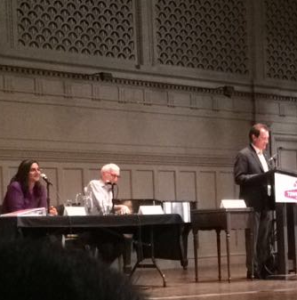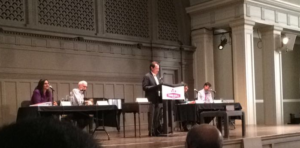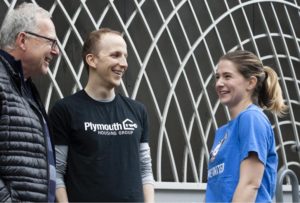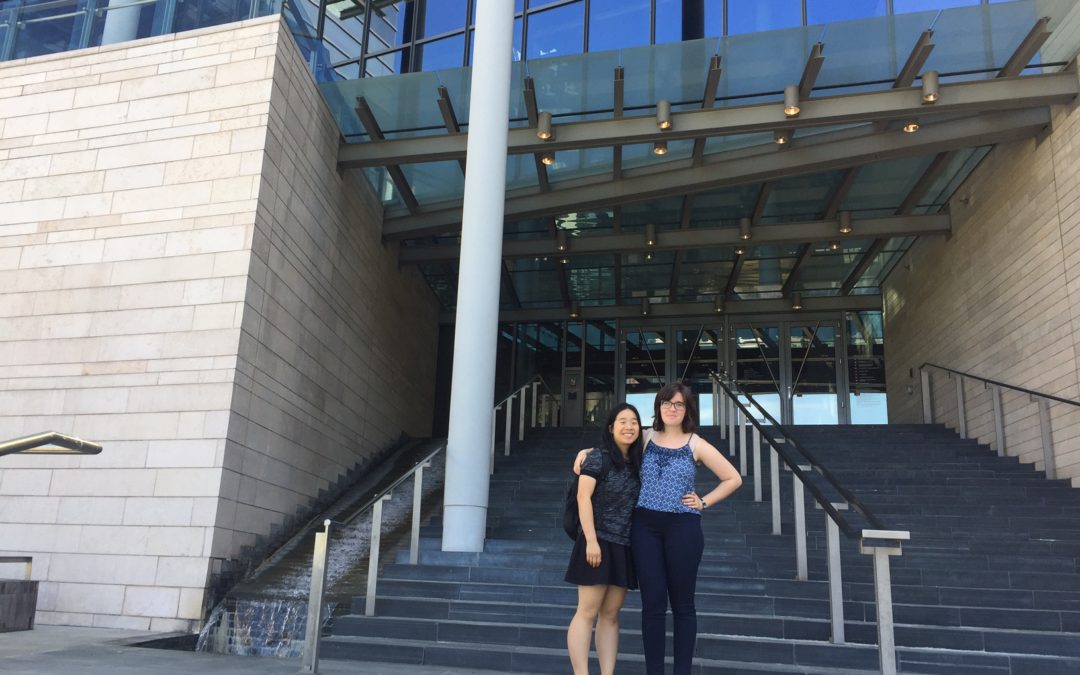
Why Seattle Needs an Income Tax
Thirsty Thursday blog post in the house! #knowledgeresponsibly
Next Monday, July 10th, the City Council will vote on an ordinance considering a city-wide income tax on our wealthiest residents. Now, I hear you, you don’t want more taxes! You have the highest rents in the world, the most regressive tax system in America, not to mention that you have to sell a limb to pay for each year of college. This tax, however, will start addressing some of these issues.
By taxing the highest earners in the city – those who earn more than $250,000 a year – the city will be able to generate more than $125 million in revenue. This tax will reverse the regressive path that our state have taken. We will take the burden off of low-income folks and start paying for our services more fairly. As we determine how the tax revenue will be used, it is our job to make it go towards issues that young people care about: debt-free community college, rent control, homelessness etc. We at the Washington Bus have been working tirelessly to make sure that happens, lobbying city council members, testifying at committee meetings, and informing y’all about the income tax that could actively combat these problems!
Young people in Seattle are struggling economically, and it is unfair to exacerbate the situation by forcing students to choose between attaining their education and staying afloat financially.
Those who prioritize their education are shackled with years of interest payments and are paying off these loans for decades. Even with successful and stable careers, these loans continue to drain funds from individuals. This prevents them from devoting portions of their income to savings, retirement plans, homes, and their families. Not to mention being strapped for cash means no opportunities for fun, and everyone deserves the chance to kick back and have a fun night in the city.
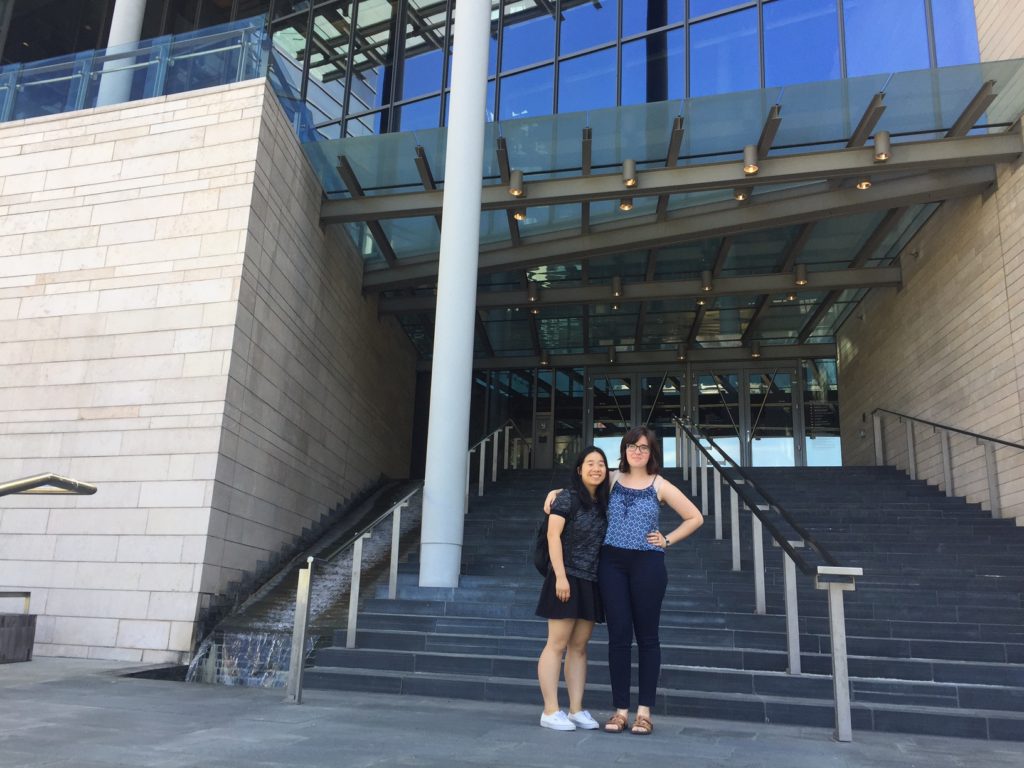
Isabelle & Sophia in front of City Hall after meeting with Councilmember Herbold about the income tax.
As two young adults growing up in Seattle, we have recently made trips to city hall where we were significantly outnumbered by people triple our age. This blatant disparity emphasizes how desperately we need young people to turn out for votes, meetings and town halls. Show your support on Monday at 2 p.m. and come to city hall and show support for the council vote on the ordinance! Your engagement and passion will change this city for decades to come and we would love to witness your power.
This blog post was written by Isabelle Yuan and Avidan Baral, the Bus’s 2 Summer Interns!

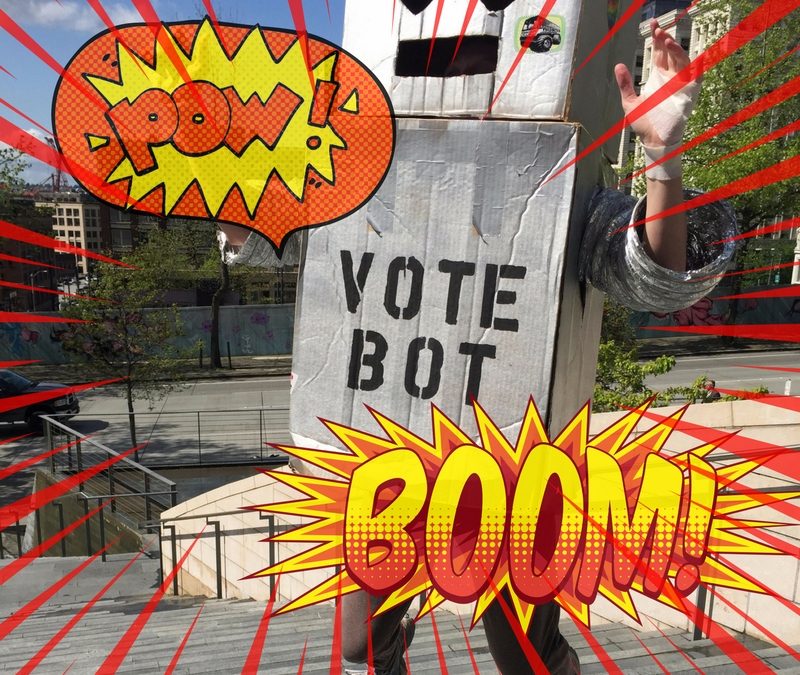
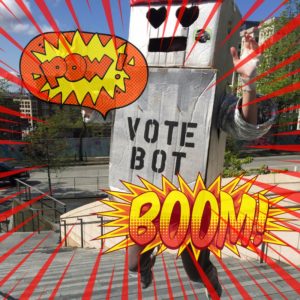 and campaign work succeed. Super-volunteers commit to a certain number of volunteer hours per month. The opportunities are varied and endless–you could register voters at Bumbershoot, testify at city council, create a zine, or help out around the office. Joining the Bustice League gets you access to #firstdibs at music festival volunteer shifts, bus swag, an opportunity to build up your organizing skills, and of course, a once in a lifetime chance to change the world.
and campaign work succeed. Super-volunteers commit to a certain number of volunteer hours per month. The opportunities are varied and endless–you could register voters at Bumbershoot, testify at city council, create a zine, or help out around the office. Joining the Bustice League gets you access to #firstdibs at music festival volunteer shifts, bus swag, an opportunity to build up your organizing skills, and of course, a once in a lifetime chance to change the world. 
